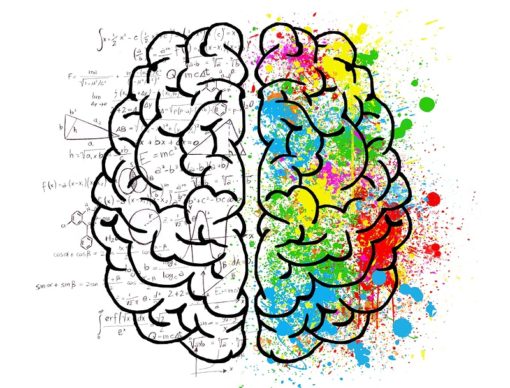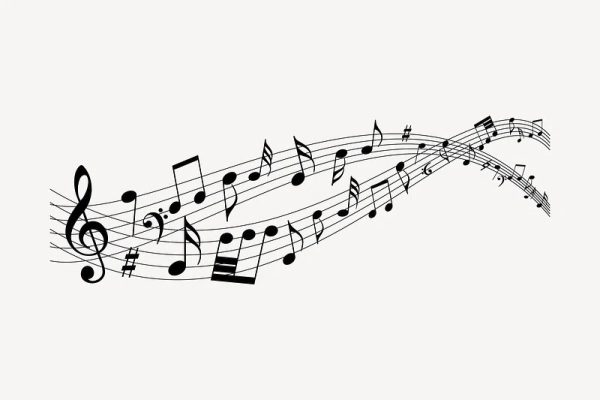Many students swear by listening to music to help them focus. Some teachers may even play quiet music in their classrooms while their students do work. “How can someone possibly focus while listening to heavy metal music?” Some might ask. Or, “How can loud, erratic music benefit a person’s focus?” Many people think only calm music or classical music would be of any help to a person’s mind, but is that really the case? Let’s dive into the facts and find out.

First things first, we should get a basic understanding of how we remember information. While talking to Mrs. Sammons, the AP Psychology teacher here at Huntingtown High, she explained in simple terms how memory is stored. Information is encoded[1] in the brain and kept safe in the hippocampus. Mnemonic devices can also be useful to strengthen memory. “Mnemonic” is any device or technique used to assist memory , such as an acronym (PEMDAS), or a rhyme (i before e, except after c), used to help strengthen the link between the information in the brain. Additionally, thinking in depth and exploring a topic more closely can help that information stick. Music can help with making mnemonic devices, but they aren’t objectively the best kind of mnemonic device.
Putting aside mnemonic devices, I thought about other auditory entertainment: Podcasts. So I asked her, could a podcast help with memorization? The short answer: Not really. Unless you are listening to a podcast about the topic you are learning and only focusing on it, they can just be a distraction. She went on to explain that lyrics and speech can distract our brains from our work. People aren’t truly able to multitask like we often think, so lyrics can end up being an external distraction. On top of all this, it can be best to emulate the environment you will test in, so music could be a hindrance.
Finally, I wanted to know if Mrs. Sammons recommends listening to music for studying. She told me that music with no lyrics and not overly distracting instrumentals would be ideal. Even better would be to create some musical mnemonic devices.
Given the fact that the brain goes through an encoding process to memorize information, the next question is how does music affect that process? Musical ties to memory have been studied for quite some time now, with people discovering some very interesting connections between the two seemingly unrelated topics. Conclusions show that music can encourage the brain’s semantic system yielding more efficient recognition of words (Koelsch, et al). Recognition, the process to identify the meaning or a learned association of something like a word when presented with a stimulus, is an important part of our memory. Tests that use multiple-choice questions are an example of this process. However, can music also help with recall? Recall is similar to recognition as it is also an important part of how our brain uses memory, but there are some big differences. While recognition relies on the connection between the stimulus and meaning, recall is the process of extracting the information without any additional stimulus. For example, fill-in-the-blank questions test on this process.
Another interesting subject I’d like to touch on is the ‘Mozart Effect’. This phenomenon was studied and highly criticized and questioned by the scientific community. To put it simply, the Mozart effect explains that listening to works by Mozart will increase IQ scores. Putting aside the fact that IQ as a form of measuring intelligence is also debated, saying one specific type of music improves IQ is difficult as personal preference also comes into play. To try and eliminate this bias, studies were conducted where rats were made to listen to Mozart, white noise, and silence while in utero. Afterwards, the rats were tested on their ability to complete a maze. The Mozart group ended up with better scores, though this still doesn’t answer if it is Mozart specifically or music in general that is beneficial. For now, the American Psychological Association Dictionary of Psychology still calls this effect an “as-yet-unsupported suggestion” in their definition of the Mozart effect.

With contradictory studies and inconclusive results, students might feel at a loss. At the end of the day, though, what a group of scientists say about as to whether music helps or not isn’t a huge deal. This information is here to help shine some light on what professionals think and have studied about music so students can make an educated decision. If listening to music feels like the best way to study then by all means, go for it. Personally, I listen to music while studying. In fact, while writing this I have been listening to a playlist full of Japanese pop and rock by artists like Ado, Aimer and THE ORAL CIGARETTES, just to name a few.
[1] the conversion of a sensory input into a form capable of being processed and deposited in memory. Encoding is the first stage of memory processing, followed by retention and then retrieval. – APA Dictionary of Psychology







